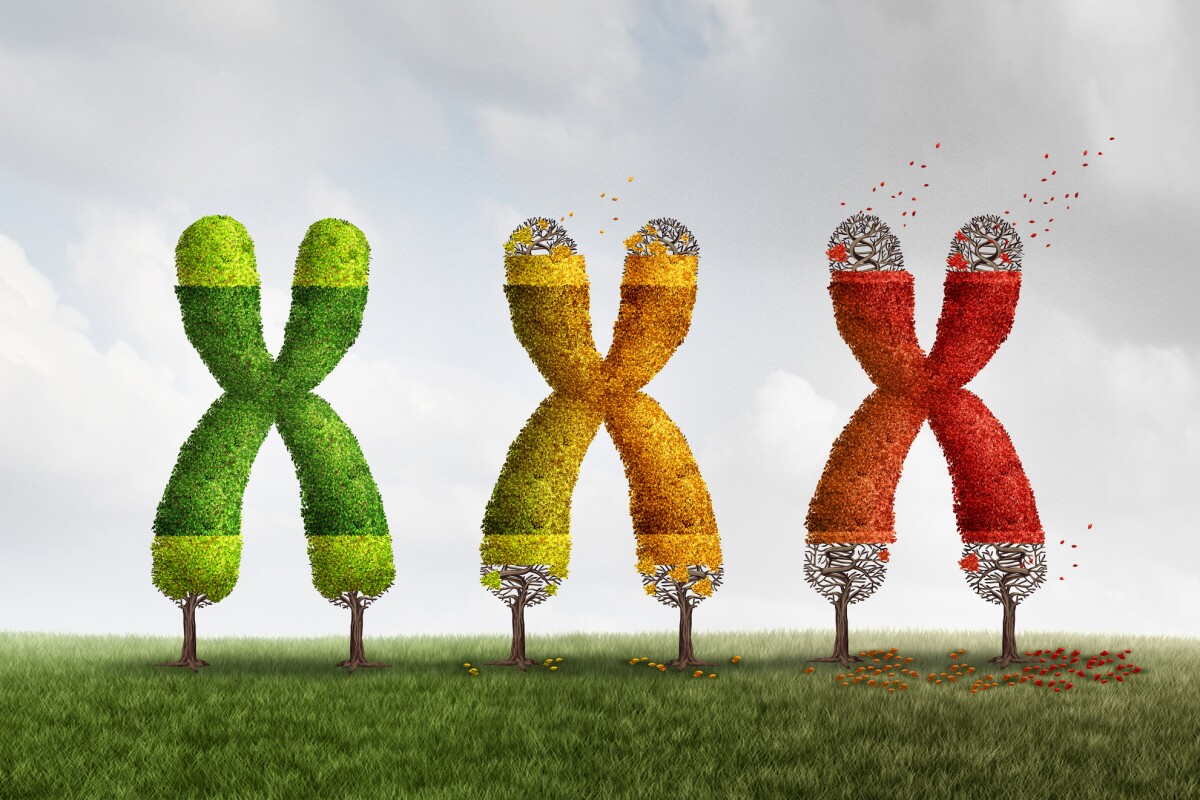
It is sometimes wondrous how obtuse the biological logic happens to be. You woyuld not think to get here from there in this way.
I so look forward to humanity discovering how to fully empower the Inner Sun to empower our spirit body to fulky regenerate our bodies. Even if it ultimately takes a technical assist rather than decades of meditation.
What we have here is a serious relationship..
New evidence strengthens link between telomere length, aging and cancer
December 02, 2020
https://newatlas.com/medical/telomere-length-aging-cancer-link/
Telomeres, the protective caps on the tips of chromosomes, have been linked to both aging and cancer
VIEW 1 IMAGES
It’s long been thought that our cells stop dividing as we age as a natural preventative measure against cancer. Now a new study has found an intriguing piece of evidence supporting this hypothesis in genomes from several families that seem to be particularly prone to cancer.
In a way, our cells have a pre-determined number of divisions in their lifetime – around 50. That limit is dictated by our telomeres, small repeating segments of “junk” DNA that form caps on the ends of our chromosomes. These act like a buffer protecting the important DNA in the chromosomes from damage when a cell divides, but a little piece of the telomere is lost each time.
In theory, lengthening our telomeres or preventing them from shrinking should help slow the aging process, or even reverse it. Indeed, plenty of research is investigating this angle. But there’s a nasty potential downside to doing so – cancer.
Cancer cells are effectively immortal, in the sense that they never stop dividing. It appears that having telomeres of a set length is an evolutionary defense mechanism to prevent that kind of runaway growth. And the new study has found more evidence supporting that hypothesis.
Researchers at the Rockefeller University and the Radboud University Medical Center studied the genomes of several Dutch families that appeared to be quite cancer-prone. Common among these patients were mutations in a gene called TINF2, which codes for a protein previously linked to telomere length.
So the team used CRISPR to engineer human cells with the same mutations, and found that they had much longer telomeres than usual. When the scientists checked the patients themselves, these little caps were also found to be particularly long.
“These patients have telomeres that are far above the 99th percentile,” says Tita de Lange, lead author of the study. “The data show that if you’re born with long telomeres, you are at greater risk of getting cancer. We are seeing how the loss of the telomere tumor suppressor pathway in these families leads to breast cancer, colorectal cancer, melanoma, and thyroid cancers. These cancers would normally have been blocked by telomere shortening. The broad spectrum of cancers in these families shows the power of the telomere tumor suppressor pathway.”
The study improves our understanding of the relationship between aging and cancer, and could eventually lead to new treatments. The research was published in the journal eLife.
No comments:
Post a Comment